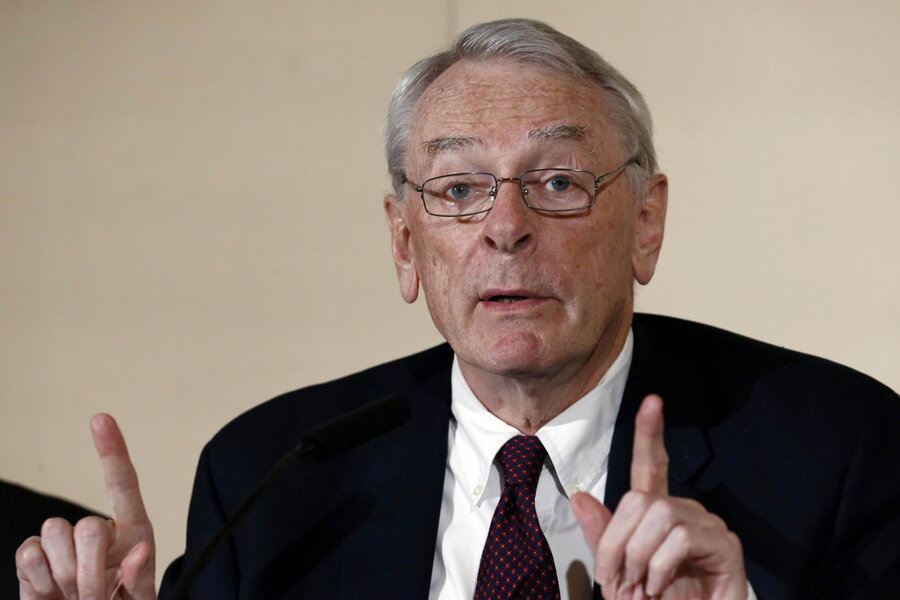Russia cheated on track and field doping tests, world body reports
Loading...
| Geneva
Russia could be banned from next year's Olympics in Rio de Janeiro after a devastatingly critical World Anti-Doping Agency report accused the country's government of complicity in widespread doping and cover-ups by its track and field athletes.
The WADA commission set up to investigate doping in Russia said even the country's intelligence service, the FSB, was involved, spying on Moscow's anti-doping lab, including during last year's Olympics in Sochi.
The commission chaired by Dick Pound recommended that WADA immediately declare the Russian athletics federation "non-compliant" with the global anti-doping code, and that the IAAF suspend the federation from competition.
"It's worse than we thought," Pound said. "It may be a residue of the old Soviet Union system."
The IAAF responded immediately, saying it will consider sanctions against Russia, including a possible suspension of the national athletics federation that would ban Russian track and field athletes from international competition, including the Olympics.
Pound said Russia's doping could be called state-sponsored.
"They would certainly have known," he said of Russian officials.
The commission said the International Olympic Committee should not accept any entries from the Russian athletics federation until the body has been declared complaint with the code and the suspension has been lifted.
If Russia doesn't clean up, "the outcome may be that there are no Russian track and field athletes in Rio," Pound said.
But he also said there may still be time for Russia to avoid that, if it starts reforming immediately — work that will take at least "several months."
"I think they can do it, I hope they can," Pound said.
More damaging revelations are still to come. The WADA commission is also looking at the role senior officials at the IAAF allegedly played in bribery and extortion involving Russian athletes. French authorities last week detained and later charged former IAAF President Lamine Diack with corruption and money laundering. The WADA commission's findings on that angle could come before the end of the year.
The commission accused the Russian state of complicity. It said its months-long probe found no written evidence of government involvement but it added: "It would be naive in the extreme to conclude that activities on the scale discovered could have occurred without the explicit or tacit approval of Russian governmental authorities."
The report said agents from the FSB even infiltrated Russia's anti-doping work at the Sochi Olympics. One witness told the inquiry that "in Sochi, we had some guys pretending to be engineers in the lab but actually they were from the federal security service."
Staff at Russia's anti-doping lab in Moscow believed their offices were bugged by the FSB and an FSB agent, thought to be Evgeniy Blotkin or Blokhin, regularly visited.
This was part of a wider pattern of "direct intimidation and interference by the Russian state with the Moscow laboratory operations," the report said.
Pound said Russian Sports Minister Vitaly Mutko must also have known.
"It was not possible for him to be unaware of it," Pound said.
The commission report said the sports ministry issued direct orders to "manipulate particular samples."
Mutko, who is also a FIFA executive committee member and leads the 2018 World Cup organizing committee, denied wrongdoing to the WADA inquiry panel, including knowledge of athletes being blackmailed and FSB intelligence agents interfering in lab work.
The WADA report also said Moscow testing laboratory director Grigory Rodchenkov ordered 1,417 doping control samples to be destroyed to deny evidence for the inquiry.
It said Rodchenkov "personally instructed and authorized" the destruction of evidence three days before a WADA audit team arrived in Moscow last December.
The WADA panel said it wanted to send the Russian athletes' samples to labs in other countries to detect banned drugs and doping methods.
The panel also raised suspicions that Russia may have has been using an obscure laboratory on the outskirts of Moscow to help cover up widespread doping, possibly by pre-screening athletes' doping samples and ditching those that test positive.
It said whistleblowers and confidential witnesses "corroborated that this second laboratory is involved in the destruction and the cover-up of what would otherwise be positive doping tests."
The panel also said it does not believe that the doping problem is limited to athletics or to Russian sports. Pound singled out Kenya, saying it seems that the East African powerhouse of long-distance running "has a real problem."







